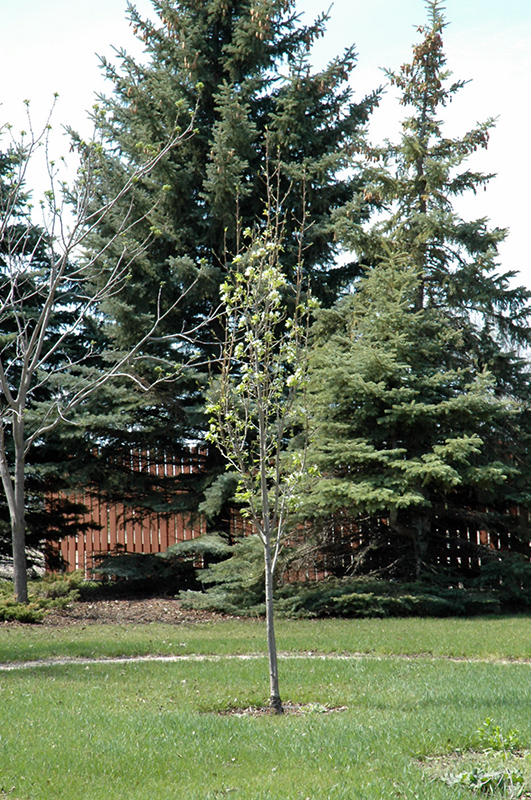Height: 26 feet Spread: 12 feet
Sunlight:
Hardiness Zone: 2a Description: A nicely conical accent tree for home landscape use, featuring a multitude of showy white flowers in spring; rarely fruits, excellent yellow to red fall color Ornamental Features Navigator Ornamental Pear is bathed in stunning clusters of white flowers with pink anthers along the branches in mid spring before the leaves. It has dark green deciduous foliage. The glossy heart-shaped leaves turn an outstanding red in the fall. Landscape Attributes Navigator Ornamental Pear is a dense deciduous tree with a distinctive and refined pyramidal form. Its average texture blends into the landscape, but can be balanced by one or two finer or coarser trees or shrubs for an effective composition. This is a high maintenance tree that will require regular care and upkeep, and is best pruned in late winter once the threat of extreme cold has passed. It has no significant negative characteristics. Navigator Ornamental Pear is recommended for the following landscape applications; Planting & Growing Navigator Ornamental Pear will grow to be about 26 feet tall at maturity, with a spread of 12 feet. It has a low canopy with a typical clearance of 3 feet from the ground, and should not be planted underneath power lines. It grows at a fast rate, and under ideal conditions can be expected to live for 50 years or more. This tree should only be grown in full sunlight. It prefers to grow in average to moist conditions, and shouldn't be allowed to dry out. It is not particular as to soil type or pH. It is highly tolerant of urban pollution and will even thrive in inner city environments. This particular variety is an interspecific hybrid.![]()
![]()
![]()
![]()
![]()
![]()
![]()
![]()
![]()
![]()



